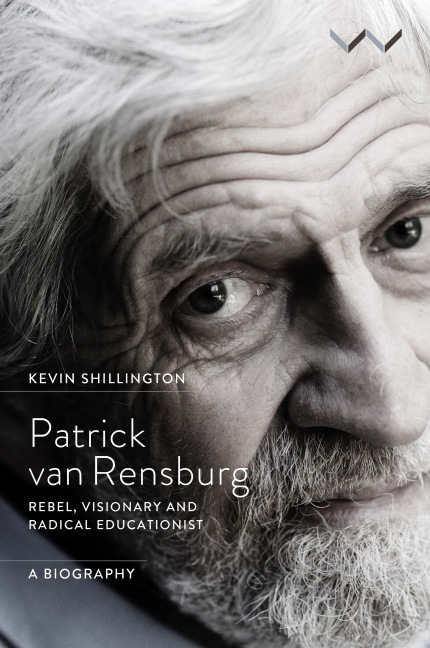Book contents
- Frontmatter
- Dedication
- Contents
- Acknowledgements
- Abbreviations and Acronyms
- List of Illustrations
- Maps
- Introduction
- 1 Origins and Identity in South Africa
- 2 An Anglophone South African, 1936–1948
- 3 The Making of an Afrikaner, 1949–1953
- 4 Diplomat and Rebel, 1953–1957
- 5 Anti-Apartheid Activist, 1957–1959
- 6 Boycott, 1959–1960
- 7 Into Exile, 1960–1961
- 8 Return to Africa, 1961–1962
- 9 The Founding of Swaneng Hill School, 1962–1963
- 10 Challenging ‘The Ladder to Privilege’, 1963–1965
- 11 The Alternative Educationist, 1965–1967
- 12 Expansion and Replication, 1967–1969
- 13 Time of Crisis, 1969–1971
- 14 Education with Production, the 1970s
- 15 Foundation for Education with Production and Spreading the Word, the 1980s
- 16 Education with Production and South Africa, the 1990s
- 17 Return to Botswana
- Epilogue
- Notes
- Bibliography
- Index
6 - Boycott, 1959–1960
Published online by Cambridge University Press: 10 September 2020
- Frontmatter
- Dedication
- Contents
- Acknowledgements
- Abbreviations and Acronyms
- List of Illustrations
- Maps
- Introduction
- 1 Origins and Identity in South Africa
- 2 An Anglophone South African, 1936–1948
- 3 The Making of an Afrikaner, 1949–1953
- 4 Diplomat and Rebel, 1953–1957
- 5 Anti-Apartheid Activist, 1957–1959
- 6 Boycott, 1959–1960
- 7 Into Exile, 1960–1961
- 8 Return to Africa, 1961–1962
- 9 The Founding of Swaneng Hill School, 1962–1963
- 10 Challenging ‘The Ladder to Privilege’, 1963–1965
- 11 The Alternative Educationist, 1965–1967
- 12 Expansion and Replication, 1967–1969
- 13 Time of Crisis, 1969–1971
- 14 Education with Production, the 1970s
- 15 Foundation for Education with Production and Spreading the Word, the 1980s
- 16 Education with Production and South Africa, the 1990s
- 17 Return to Botswana
- Epilogue
- Notes
- Bibliography
- Index
Summary
Meanwhile, north of the Limpopo the movement for liberation from colonialism had been gathering pace, and Kwame Nkrumah, prime minister of Ghana, hosted the first All-African People's Conference in the Ghanaian capital, Accra, from 8 to 13 December 1958. Delegates representing African political parties attended from all over the continent and included many of the future rulers of independent Africa.
The ANC's delegation was led by the renowned South African literary figure Ezekiel (later Es’kia) Mphahlele, who was teaching in Lagos, having been banned from teaching in South Africa because of his opposition to Verwoerd's ‘Bantu Education’. The delegation included the escaped Treason Trialist Alfred ‘Tough’ Hutchinson, who, after travelling for two months across the continent, walked into the hall to great excitement on the second day of the conference.
His arrival helped inspire the delegates to pass a resolution calling for an international boycott of all South African goods. This international support provided the stimulus for the ANC in South Africa, and at its annual congress in Johannesburg later that month there were calls for a general boycott of firms belonging to Afrikaner Nationalists. In February 1959 the party published a list of firms and products to be boycotted.
Patrick already saw the potential of boycott as a perfectly legal extra-parliamentary tool with which to bring pressure to bear on the white electorate. Many within the Liberal Party, however, were apprehensive about engaging in extra-parliamentary activity, especially alongside the ANC, with its ‘communist sympathies’.
In an attempt to nudge the party into ‘a “united front” with the African National Congress on matters of common concern’, Patrick leaked to the press the news that the party was secretly planning to cooperate with the ANC in a national propaganda campaign against apartheid. He clearly had boycott in mind and his leak to the press caused consternation among some of the well-heeled members of the Liberal Party.
Patrick was contemptuous of these ‘comfortable, middle-class Anglophones, many of them smugly self-righteous, and excessively precious, ever protective about their cosy brand of liberalism’, but they could not be so easily written off and some of them saw an opportunity to curb what they perceived to be his dangerously radical influence.
- Type
- Chapter
- Information
- Patrick van RensburgRebel, Visionary and Radical Educationist, a Biography, pp. 73 - 88Publisher: Wits University PressPrint publication year: 2020

